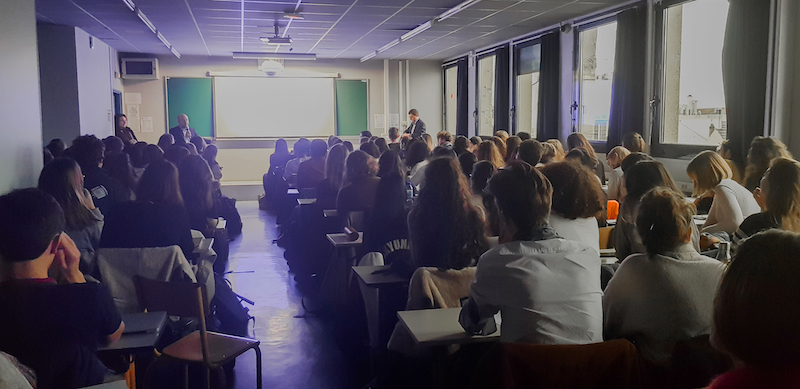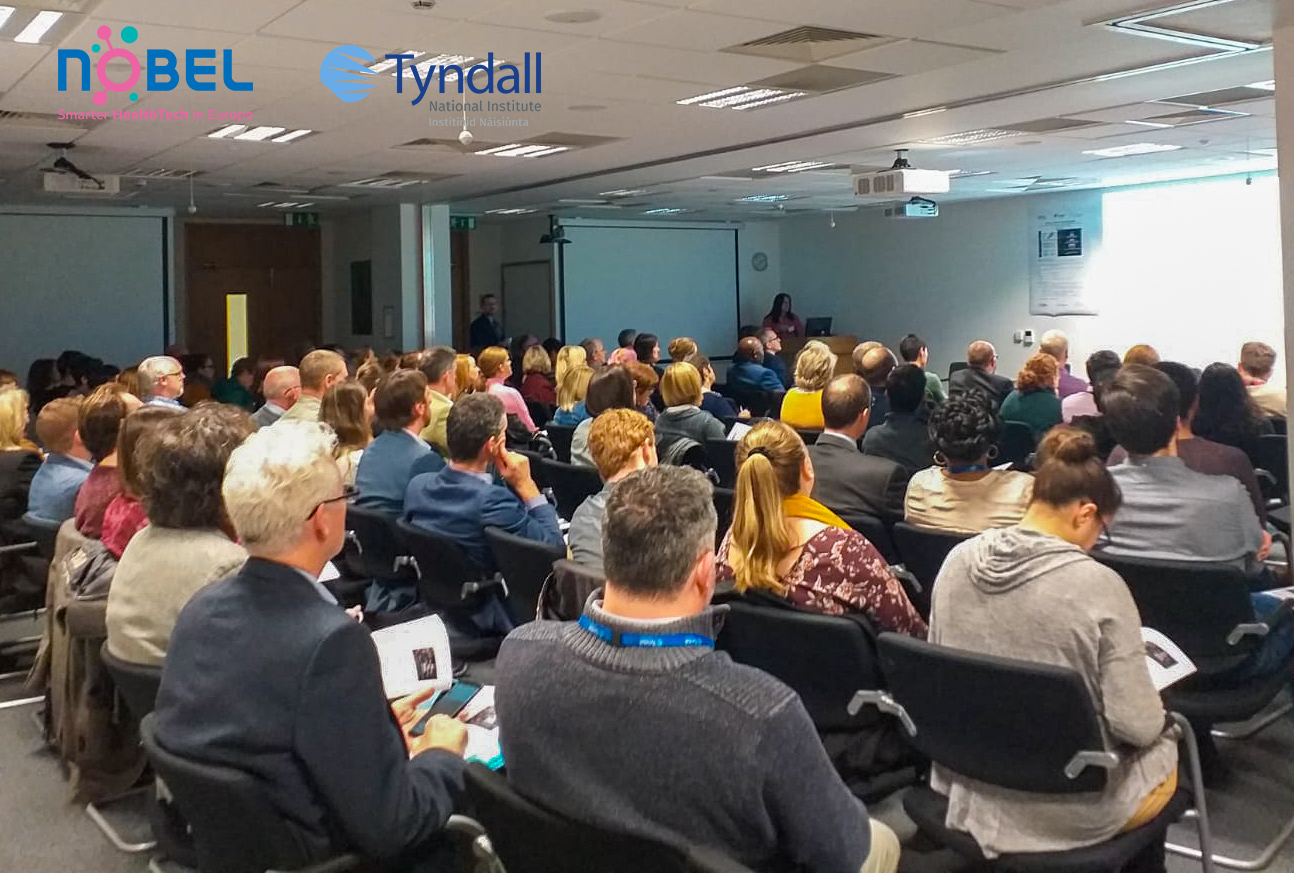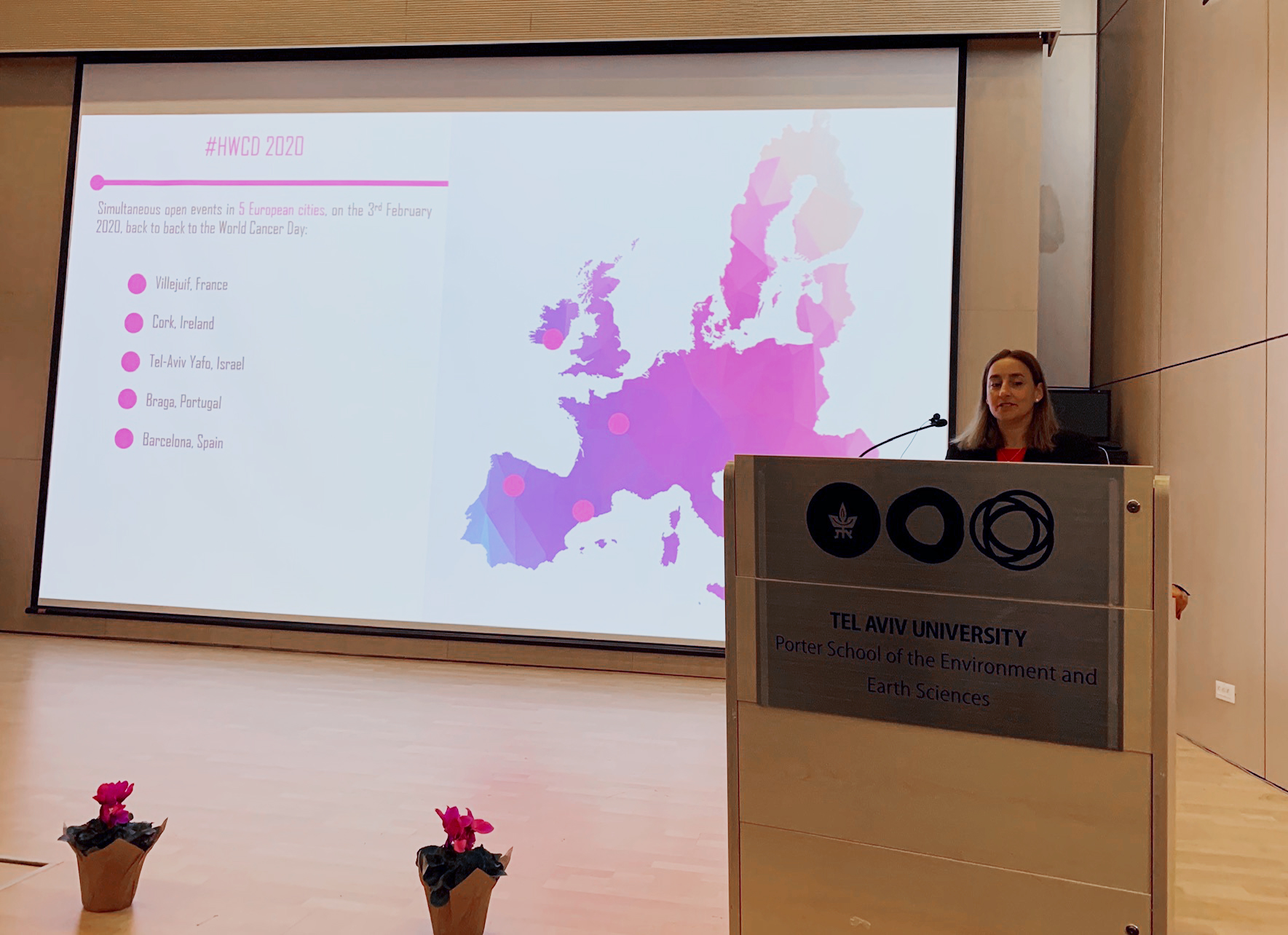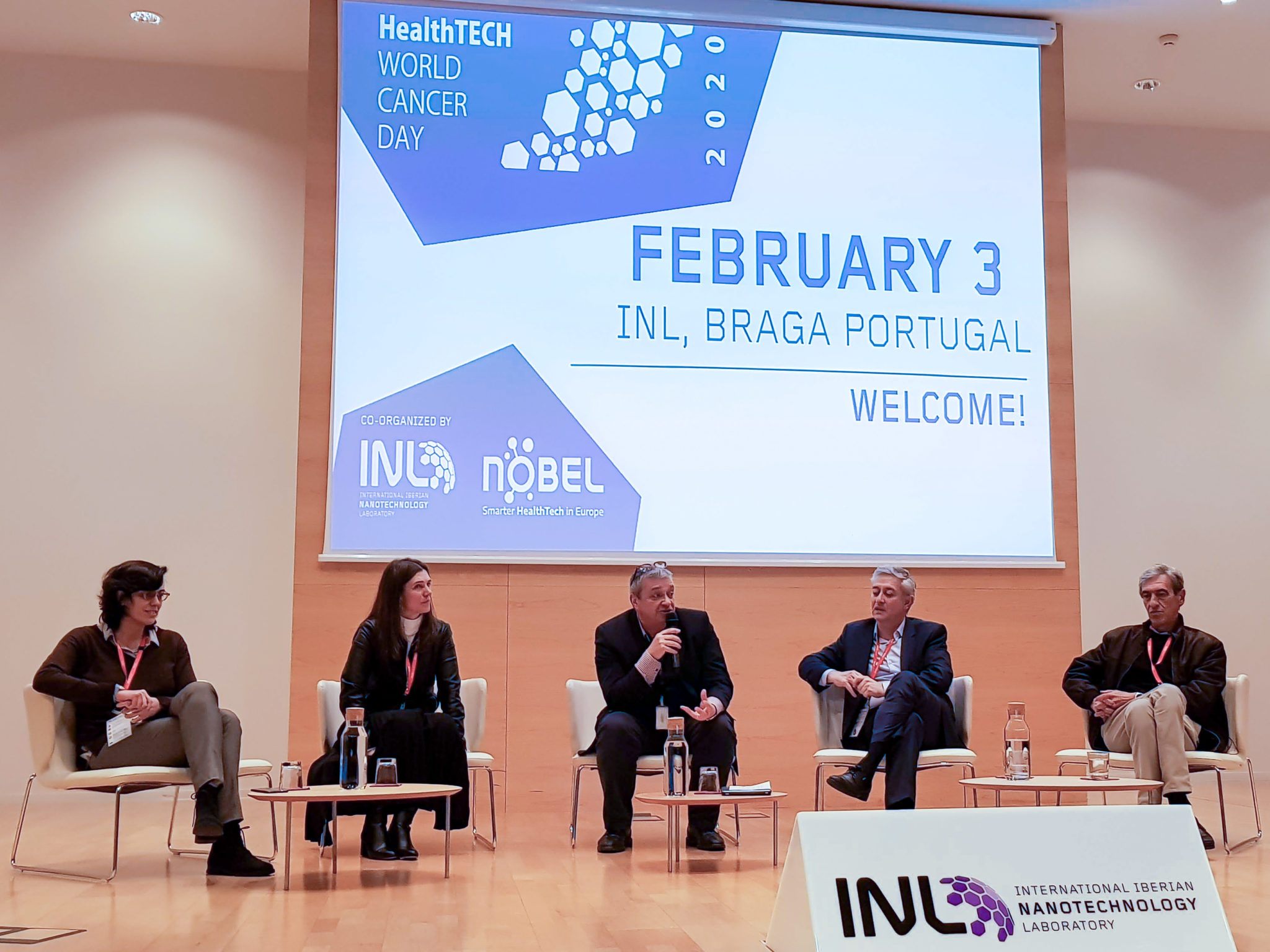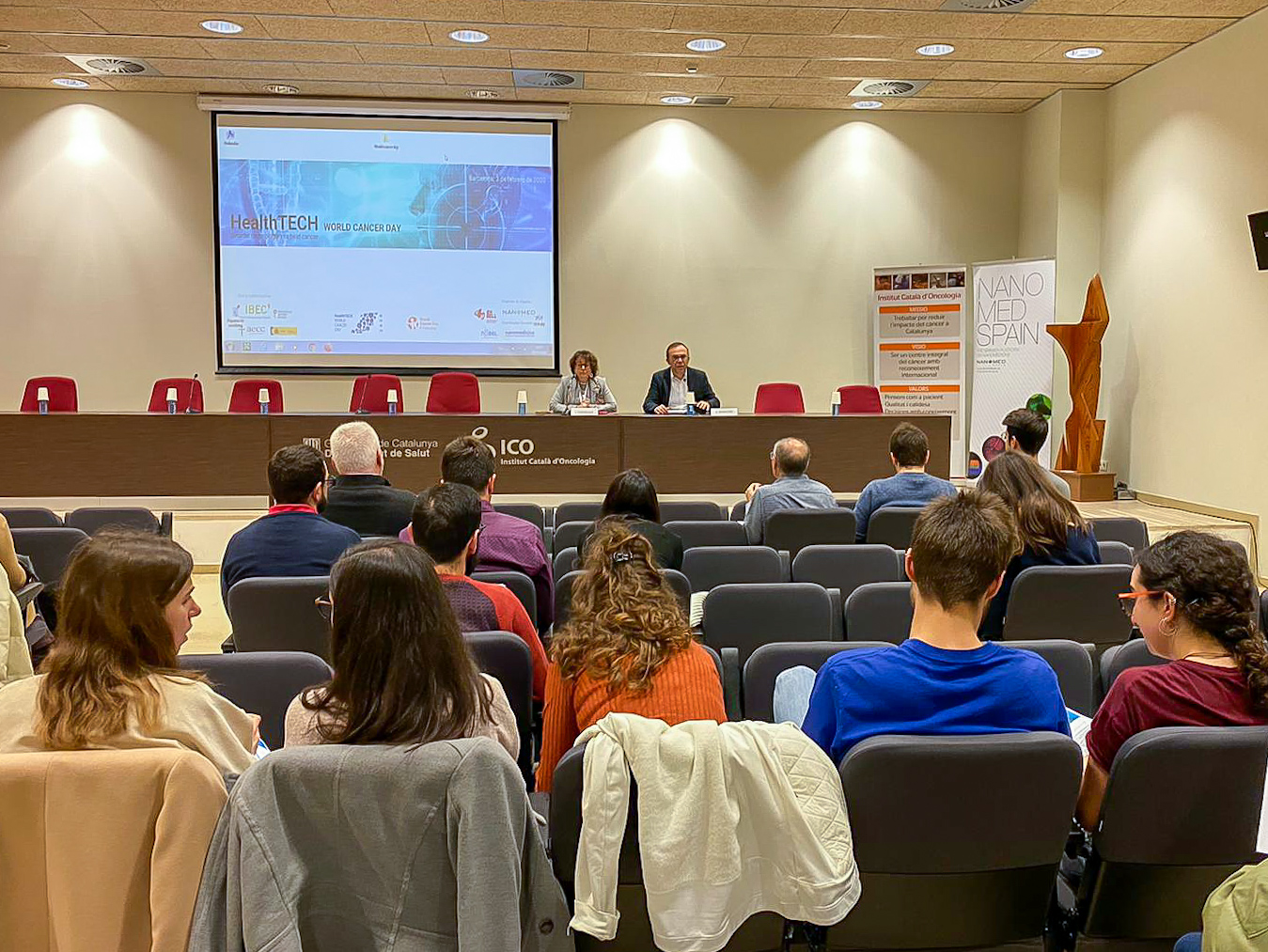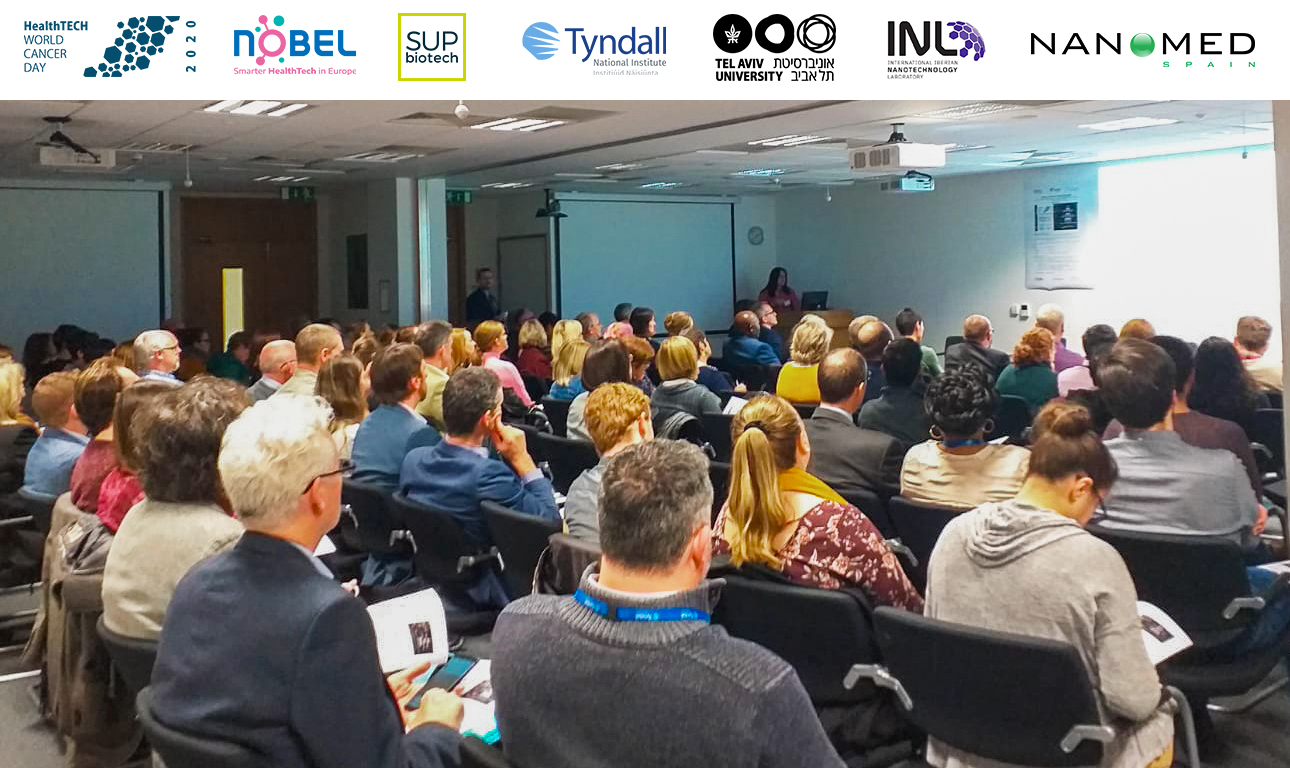
The 2nd edition of the HealthTech World Cancer Day (HWCD20) took place this year on February 3 2020 in 5 European cities in France, Ireland, Israel, Portugal and Spain. These open events showcased the revolution brought by temerging health technologies in the fight against cancer, which is still a worldwide sourge. The event gathered:
+35 great expert speakers, specialists of new health technologies: researchers, clinicians, entrepreneurs, patient associations
+550 attendees
+15 press articles, TV & radio reports
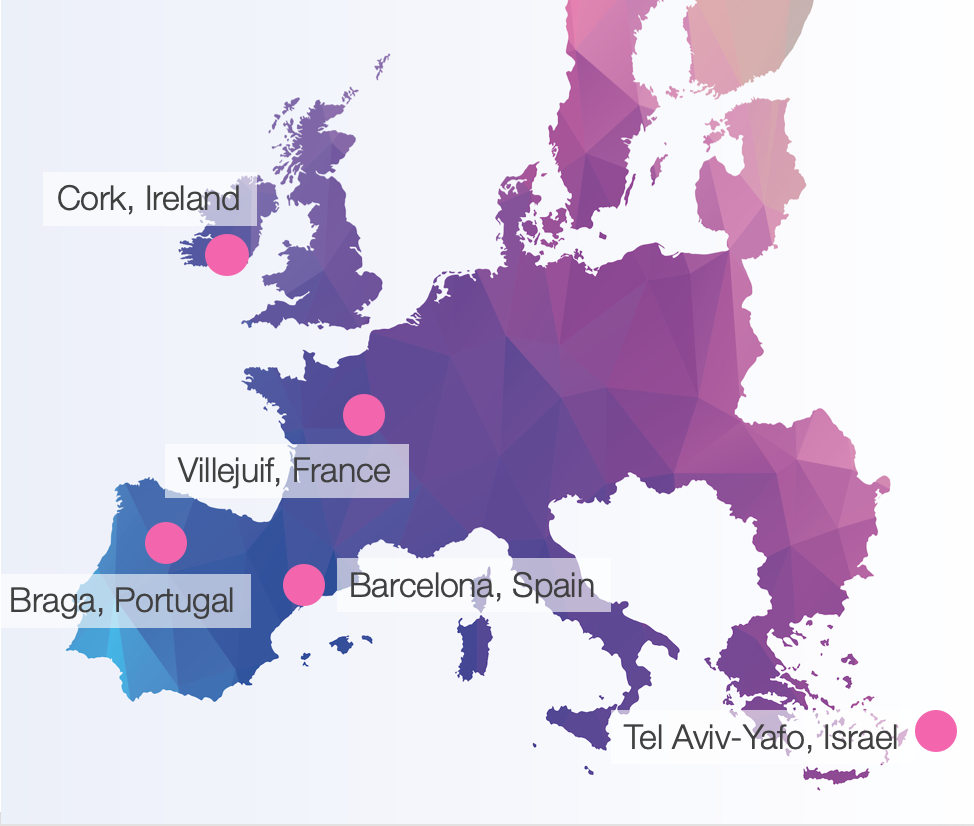
Cancer is still a worldwide scourge
Indeed, cancer is still the 2nd cause of mortality worldwide, and its incidence has been steadily increasing since 1980. The last Globocan study accounts for 18 million new cases and 9,5 million related deaths in 2018. More than 70% of all cancer deaths already occur in low and middle income countries and these regions are projected to account for two thirds of all cases of cancer worldwide by 2050. The number of cancer cases and related deaths worldwide is estimated to double over the next 20 to 40 years.
However, a very encouraging improvement in cancer prevention, diagnosis and treatment has been brought by intense medical research and technology development during the last 20 years.
Technological progress brings about a medical revolution
All technologies with applications in the field of healthcare, i.e. biotech. nanomedicine, photonics, robotics, advanced materials and digital sciences are currently converging to accelerate the development of new devices that will revolution oncology:
- Earlier, more precise and less invasive diagnosis of cancer: early detection of tumor cells is a major challenge of modern oncology since it drastically improves the chance of survival and recovery of patients. The discovery of new biomarkers as well as of new non-invasive ways to detect cancer is then key. Notably, RUBYNanomed, a Portuguese startup company, is developing a device enabling liquid biopsy, tumour cells detection directly in the blood thanks to microfluidics. Preclinical studies have already been achieved. Currently, new projects are focusing on cancer detection in the breathe!
- More efficient and safer treatments of cancer. Surgery, radiotherapy and chemotherapy are currently the most common cancer treatment options. Depending on each individual patient’s profile of disease, they can be used either alone or in combination. New technologies already improve these therapeutic approaches and news products in development have the potential to do much more for patients in the coming years. Recently, NOBEL Partner Nanobiotix got CE approval for Hensify (TM), a nano radio-enhancer that dopes the efficiency of radiotherapy, for the treatment of soft tissue sarcoma, and currently under clinical trials for many solid tumors.
- Accelerated rehabilitation of cured patients, like allowing mammal reconstruction after breast cancer surgery thanks to Bio-absorbable implants designed with new advanced biomaterials and 3-D printing by Lattice Medical.
The scheme below illustrates the wide set of new technologies is currently in development, from hardware to software, helping to fight cancer.
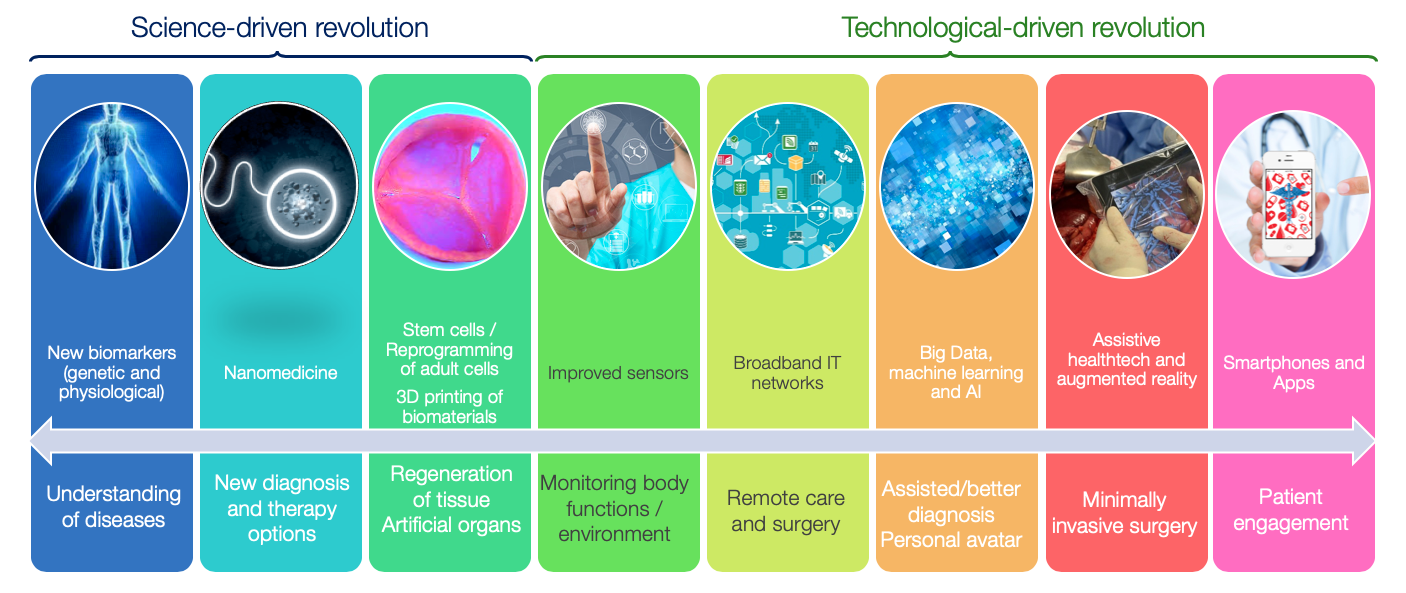
This was only an overview of current HealthTech innovation introduced during #HWCD2020! The collective effort allowing researchers, entrepreneurs and practitioners to provide us with means of action against cancer has to thrive. In this fight, the NOBEL Project supports all of those actors by informing the public, by providing them with a common space to develop those multidisciplinary approaches and by accelerating innovation thank to our experts’ board, the HealthTech TAB.

